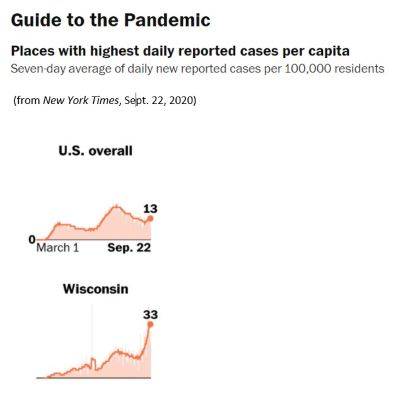Recent Blog Posts
Should We Include Virtual Visitation In Our Wisconsin Custody Agreement?
If you are a divorced or single parent, you likely know the importance of outlining when and where your child will physically reside in your parenting agreement. Virtual visitation via electronic communication is perhaps a lesser-known component of a parenting agreement, but it can be a great option for children and parents for whom physical visitation is not always possible.
When Is Virtual Visitation a Good Idea?
Virtual visitation can occur via phone, video chat, text, email, or any other electronic means, and it can be useful in a variety of situations to allow children to regularly communicate and maintain relationships with their parents. Some examples of when you might consider virtual visitation include:
- When parents live far from each other: In Wisconsin, a parent who wishes to relocate more than 100 miles away from the other parent must obtain court approval, and they must often demonstrate that the relocation will not detract from the children’s relationship with the other parent. Virtual visitation is one way to ensure that this relationship continues.
How Can I Make Sure My Wisconsin Prenuptial Agreement Is Valid?
Whether you are getting married for the first time or remarrying after a divorce, a prenuptial agreement can help you and your partner enter your marriage with a clear understanding of each other’s needs and interests regarding marital and non-marital property. Getting a prenuptial agreement does not mean that you believe a divorce is inevitable, but it is important that you go about the process of creating an agreement correctly to make sure that it is valid and enforceable if you do decide to divorce later on.
Creating an Enforceable Prenuptial Agreement in Wisconsin
In most cases, the terms of a prenuptial agreement will be honored during the divorce process. However, actions during the process of creating the agreement may make some or all of a prenup’s terms unenforceable. If you want to ensure that your prenuptial agreement is legally valid, you should:
- Be honest about your property and finances. It is important to provide your partner with a full disclosure of your properties and debts before creating a prenuptial agreement. Withholding important information may nullify the agreement.
Gov. Evers Declares New Public Health Emergency Due to Sharp Increase in 18-24 Year-Olds With COVID Infections
Due to a sharp increase in the number of COVID-19 cases in Wisconsin, Governor Tony Evers has declared a new public health emergency in addition to the previous emergency declaration made on July 30. This surge in cases has mostly affected people between the ages of 18 and 24, including those on college campuses and who have attended social gatherings. To address these concerns Gov. Evers also issued an executive order requiring Wisconsin residents who are five years old or more to wear masks or other face coverings whenever they are indoors or in enclosed spaces with people other than those in their household or family. Here is Gov. Evers' press release:

Gov. Evers Declares New Public Health Emergency Due to Campus Outbreaks, Issues New Face Coverings Order
How Can I Determine Who Is at Fault for a Wisconsin Car Accident?
If you are injured in an accident, you may understandably be preoccupied with your pain and the need for medical attention in the immediate aftermath. However, when you see the medical bills for your necessary treatment, your concern may quickly shift to your ability to pay. At this point, it is important to identify who was at fault for the accident to determine whether it is possible to pursue a personal injury claim or lawsuit that can get you the compensation you need to cover your expenses.
When Is a Driver Liable for an Accident in Wisconsin?
Accident liability is determined by a driver’s negligence. In order to obtain compensation through a lawsuit, you will likely need to demonstrate that another driver in the accident acted carelessly or dangerously, violating his or her duty of care to you and causing the accident that led to your injuries.
In Wisconsin, some of the most dangerous and deadly forms of negligence are speeding and drunk driving, both of which cause over 160 fatalities and thousands of injuries each year. If you are able to gather evidence of these behaviors in the form of witness testimony, camera footage, crash reports, and blood alcohol test results, this may increase your chances of receiving full compensation.
How Do Wisconsin’s Self-Defense Laws Apply to Deadly Force?
Recent events in Kenosha have raised questions about Wisconsin’s laws regarding the use of a firearm in self-defense. While we make no judgments regarding any ongoing cases, it is important for all Wisconsin residents to understand their rights to self-defense according to state law, especially if they find themselves under attack or facing criminal charges. Cases involving self-defense can be complicated, and if you are facing charges, your best option to avoid a conviction is to hire an experienced criminal defense attorney who can develop a strategy based on a thorough understanding of the law.
When Is Self-Defense Legally Justified in Wisconsin?
Wisconsin law allows you to threaten or use force against another person when you reasonably believe that they intend to do you harm or illegally interfere with your person. However, you are authorized to use only the force necessary to prevent the harm or interference from occurring. This means that you may only use deadly force in self-defense if you reasonably believe that it is necessary to prevent someone from killing or doing great bodily harm to you. You are also permitted to use force to defend a third party if your intervention is necessary to protect him or her from harm.
Tips For Preventing Boating Accident Injuries in Wisconsin
Summer in Wisconsin is a popular time for boating on Lake Michigan, the many lakes in Waukesha County, and other bodies of water in the area, especially during a year when many people are turning to outdoor activities. Just remember that when you go out on the water, there are things that you, your family, and your friends can do to stay safe and avoid being injured in a boating accident or causing one yourself.
How to Stay Safe While Boating in Wisconsin
Boating safely is not difficult as long as you follow a few basic guidelines. Some of the best ways to promote and ensure safety while on the water include:
- Wear a life jacket. Most fatalities in boating accidents are due to drowning, and even if you are an experienced swimmer, you could find yourself incapacitated to the point where you are unable to stay afloat on your own. Make sure you always wear a life jacket while boating and that you have enough life preservers on board for all passengers.
When Can First-Time OWI Offenders Face Additional Penalties?
 In Wisconsin, drunk driving is a factor in almost 3,000 injuries and 170 fatalities each year, and operating while intoxicated (OWI) is a criminal offense that can often result in serious consequences. If you are arrested under suspicion of driving while impaired by drugs or alcohol and have no prior record, you may be fortunate to avoid some of the more severe criminal penalties that apply for repeat offenders. Under certain circumstances, however, you may face the possibility of a criminal conviction, which can result in jail time, probation, and substantial fines that well exceed those typically associated with a first-time drunk driving offense.
In Wisconsin, drunk driving is a factor in almost 3,000 injuries and 170 fatalities each year, and operating while intoxicated (OWI) is a criminal offense that can often result in serious consequences. If you are arrested under suspicion of driving while impaired by drugs or alcohol and have no prior record, you may be fortunate to avoid some of the more severe criminal penalties that apply for repeat offenders. Under certain circumstances, however, you may face the possibility of a criminal conviction, which can result in jail time, probation, and substantial fines that well exceed those typically associated with a first-time drunk driving offense.
Aggravating Factors in a First-Time OWI Arrest
In most cases, a first conviction for an OWI offense in Wisconsin results in a fine between $150 and $300, plus costs, and the revocation of the offender’s driver’s license for six to nine months. However, several additional factors can result in greater penalties, including:
When Health Care Workers Are Arrested: Health and Criminal Issues
It is a situation that can happen: a licensed health care professional is arrested for a first-offense operating while intoxicated (OWI), and they immediately hire a criminal defense attorney.
A first-offense OWI is not a criminal offense in Wisconsin, but rather a traffic violation. Depending on the county, the case may not even show up in CCAP (the Wisconsin Circuit Court Access Program).
The health care professional wants to resolve the case quickly, so they stipulate to a guilty plea. The client may not even have to show up to court, because this can all be done electronically or via fax – an ideal resolution for a busy health care professional.
How Can Unmarried Fathers Establish Paternity in Wisconsin?
Establishing legal paternity is often a goal for unmarried mothers who want to ensure that their child’s father contributes to the child’s financial needs and well-being, but it can be just as important for unmarried fathers who want to secure the rights to be a part of their child’s life. If you are an unmarried father seeking legal paternity, a family law attorney can guide you through the process.
What Are the Benefits of Establishing Paternity?
Establishing legal paternity is often crucial for children because it allows them to receive support from both parents in the form of child support payments, health insurance coverage, access to family medical history, Social Security benefits, inheritances, and more. For fathers, legal paternity means they can pursue custody and visitation, contribute to parenting plan agreements, and be notified if a child’s mother wishes to place him or her for adoption.
What Are the Consequences for Underage DUI in Wisconsin?
 According to the Center for Disease Control, alcohol contributes to the deaths of over 4,000 people below the age of 21 every year, with more than 1,500 of those involving car accidents. To promote the safety of young people, Wisconsin law specifies the consequences for a variety of underage drinking offenses, including driving and drinking. If you have been arrested for underage DUI, you need an attorney who can help you understand your rights and ensure that you are treated fairly.
According to the Center for Disease Control, alcohol contributes to the deaths of over 4,000 people below the age of 21 every year, with more than 1,500 of those involving car accidents. To promote the safety of young people, Wisconsin law specifies the consequences for a variety of underage drinking offenses, including driving and drinking. If you have been arrested for underage DUI, you need an attorney who can help you understand your rights and ensure that you are treated fairly.
Penalties Under Wisconsin’s “Not a Drop” Law
Underage drivers are subject to more stringent restrictions than drivers over the age of 21 because of Wisconsin’s absolute sobriety, or “Not a Drop,” policy. If you are underage, you may be arrested if you are found to have a blood alcohol concentration (BAC) of 0.00 to 0.08, a range that is within the legal limit for drivers of a legal drinking age.

 By
By  By
By 





